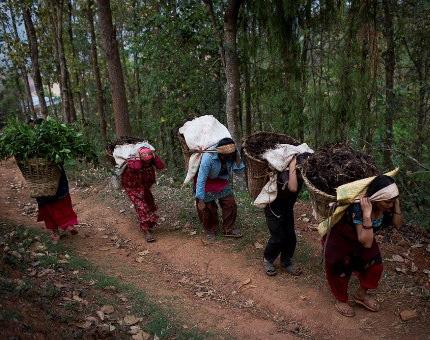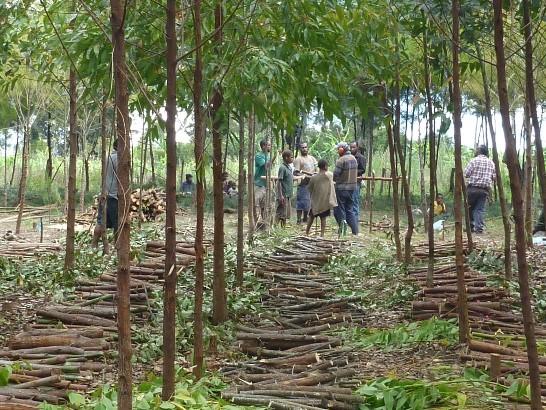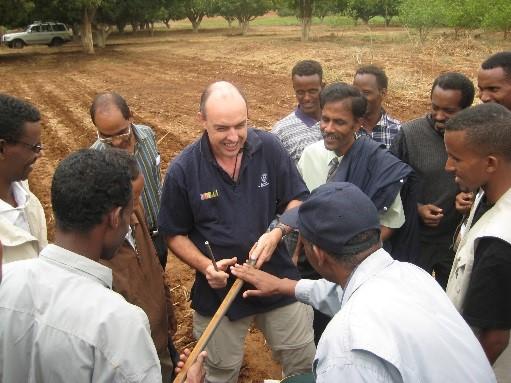Agroforestry and Extension Systems
Agroforestry and community forestry
Agroforestry broadly studies how woody-perennial species in agricultural and pastoral systems can be managed to enhance their productivity and the ecosystem services they provide.
Community forestry concerns community-based management of forests and our research in it includes its silvicultural, social and institutional aspects.
Our group’s research focus is in developing countries, mostly funded by the Australian Centre for International Agricultural Research (ACIAR).

Farm-forest interface. Fodder from the community forest is taken into the farm and converted to manure for crops. Photo: Conor Ashleigh
EnLiFT project
Enhancing livelihoods and food security from agroforestry and community forestry in Nepal.
This interdisciplinary project integrates various streams of research activity:
- Agroforestry interventions for high-value markets.
- Bioeconomic modelling of the farm-forest interface.
- Participatory silvicultural interventions and training.
- Inclusive community forest planning.
- Market-oriented community forest interventions.
- Research-policy interface.
- Bayesian analysis of causes of under-utilised land.

Harvesting a SRC fuelwood trial near Mt Hagen. Photo: Ian Nuberg
Promoting diverse fuelwood production systems in Papua New Guinea
This project undertook:
- a comprehensive survey of domestic and commercial fuelwood supply and demand;
- evaluation of short-rotation coppicing (SRC) tree species for fuelwood and charcoal production; and
- facilitated the establishment of charcoal producer-vendor business groups.
Extension systems

Chris McDonough with Eritrean Agricultural College staff and students exploring soil monitoring techniques. Photo: Rural Solutions SA
Social aspects of land use
Agricultural systems research often requires understanding of associated social and institutional systems.
This knowledge is required for either, developing new technology and facilitating its adoption, or for recommending policy for industry management.
Currently we are working on understanding adoption and participatory extension better in Africa and the Middle East.
Project team


